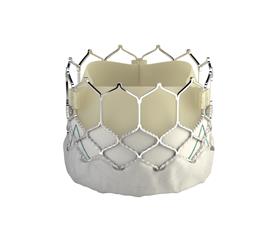Edwards Lifesciences reports good outcomes for Sapien 3 transcatheter aortic heart valve
11 June 2014
Edwards Lifesciences has released clinical trials data on its most advanced transcatheter aortic heart valve, the Sapien 3. Results from the trial concluded that outcomes at 30 days were excellent.
Transfemoral Sapien 3 implantation was associated with a very low mortality of 2.1%, a stroke rate of 1.0%, and very few access-site complications. In addition, 96.6% of patients had ≤ mild paravalvular leak. There was no severe paravalvular leak.
Access approaches included transfemoral (n=96) and transapical/transaortic (n=54), as determined by the Heart Team. All-cause mortality in all access approaches was reported as 5.3 percent in the as-treated population. The study was conducted at 16 centres in Canada, France, Germany, Italy and the UK in 2013.
“This valve represents a significant step forward in offering a simpler procedure for transcatheter heart valve replacement, with fewer post-procedural complications and less paravalvular aortic regurgitation,” said Dr Philip MacCarthy, Clinical Director of Cardiovascular Services, Kings College Hospital, London. “Results from the trial demonstrated that the improved valve and delivery system design enabled teams to position the valve precisely, and early outcomes have been excellent.”

The Sapien 3 valve
“The Edwards Sapien 3 valve sets a new standard for tissue valves, combining a low-profile design with the ability to address paravalvular leak, as well as improved delivery systems,” said Larry L Wood, corporate vice president, transcatheter heart valves. “It is particularly encouraging that these early results showed that none of the patients were re-hospitalized during the follow-up period, which is a meaningful outcome for patients who had previously been very ill.”
The Sapien 3 valve was approved in Europe in January 2014 for the treatment of high-risk and non-operable patients with severe aortic stenosis. It is not approved for the treatment of intermediate risk patients in Europe. The valve is an investigational device not yet available commercially in the United States, where is is being evaluated. in a clinical trial.
Source: Edwards Life Sciences